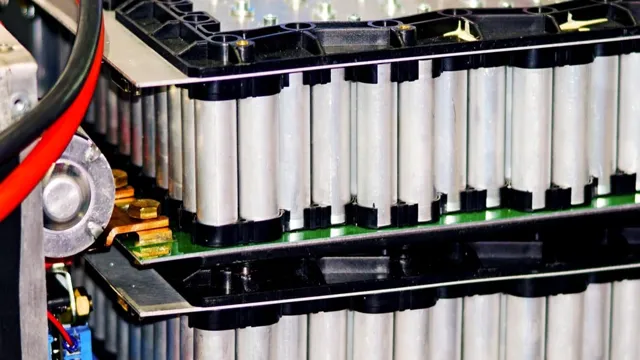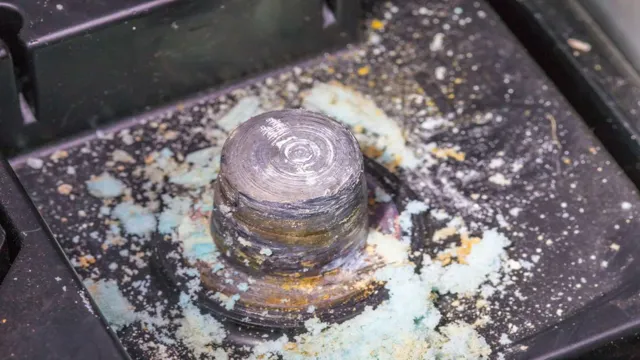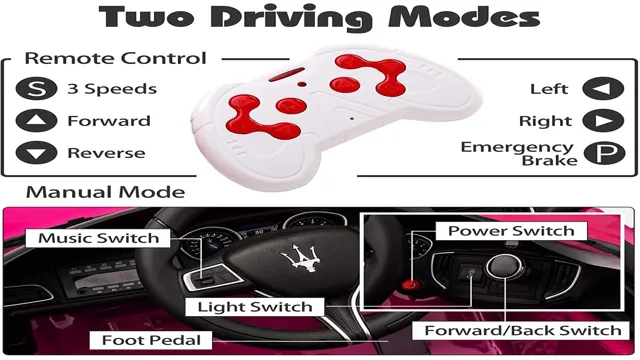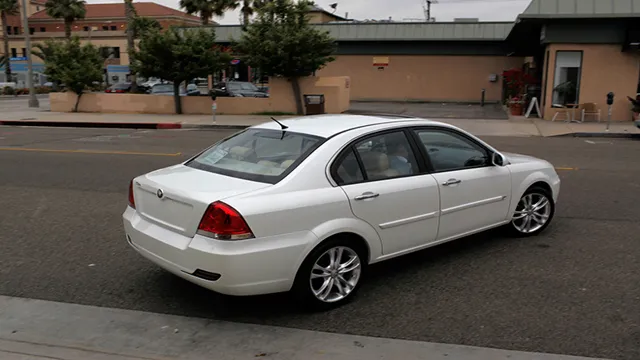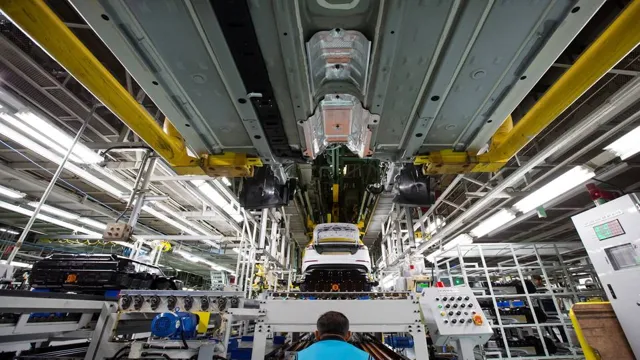What You Need to Know About Electric Car Battery Disposal Fees: A Comprehensive Guide
Electric cars have become increasingly popular in recent years, with many individuals looking to reduce their carbon footprint by driving a more eco-friendly vehicle. However, while electric cars offer many environmental benefits, they also come with a unique set of challenges, one of which is the disposal of their batteries. Under current regulations, electric car owners are required to pay a disposal fee to ensure that their batteries are disposed of properly.
But what exactly is this fee, and why is it necessary? In this blog, we’ll explore the ins and outs of the electric car battery disposal fee and what you need to know as an electric car owner.
What is the electric car battery disposal fee?
Electric car battery disposal fees are charges that are put in place by some governments and companies to cover the cost of disposing of electric vehicle batteries in an environmentally-friendly manner. The fees can vary depending on the jurisdiction and type of battery being disposed of, but they are intended to ensure that the batteries are not simply discarded in landfills or other improper locations. Additionally, some companies may offer programs for recycling or repurposing used batteries, and these programs may be incentivized or supported by the disposal fee.
For consumers of electric vehicles, the disposal fee may be included in the purchase price of the vehicle or charged separately at the time of disposal. It’s important to note that disposing of electric car batteries improperly can be dangerous and harmful to the environment, so paying the disposal fee is an important part of the responsibility that comes with driving an electric vehicle.
Explanation of the fee and its purpose
The electric car battery disposal fee is a charge that electric vehicle owners pay when purchasing a new battery or disposing of an old one. This fee is put in place to cover the cost of safely and environmentally responsibly recycling or disposing of electric vehicle batteries. Due to the complexity and hazardous nature of electric vehicle batteries, they must be treated differently than traditional car batteries.
The fee helps ensure that these batteries are disposed of properly and do not harm the environment or pose a danger to people. While this fee may seem like an additional cost for electric vehicle owners, it ultimately benefits everyone by promoting sustainability and reducing negative impacts on the environment. So, next time you see the electric car battery disposal fee, remember that it’s a step towards a greener and healthier future.
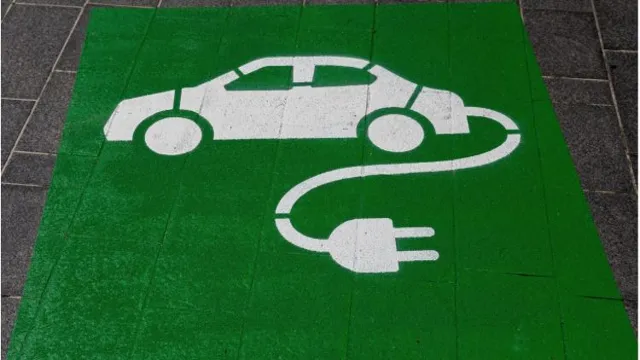
History of the fee and its implementation in different countries
The electric car battery disposal fee is a fee charged on electric car batteries to cover the costs of properly disposing of them. The fee has been implemented in many countries to encourage responsible battery disposal and protect the environment from potential hazards posed by batteries’ toxic elements. Some countries, such as Norway and the Netherlands, have implemented a deposit-refund system, where consumers pay an initial fee when they purchase the battery and receive a refund once they return it for proper disposal.
Other countries, like Germany and France, have implemented a recycling fee paid by manufacturers, which is then passed down to consumers through the cost of the battery. Regardless of the implementation method, the fee serves as a crucial component of electric car sustainability and environmental responsibility.
How much is the electric car battery disposal fee?
When it comes to owning an electric car, one thing that might not be top of mind is the electric car battery disposal fee. However, it is important to know that there is a fee for disposing of these batteries due to the hazardous materials they contain. The fee varies by location and can range from a few hundred dollars to over a thousand dollars.
It’s important to keep in mind that this fee is not something that you will need to pay often. Due to advancements in battery technology, these batteries have a long lifespan and can typically last for 10-15 years before needing to be disposed of. Additionally, there are recycling programs in place to help offset the cost of disposal and ensure that these batteries are reused as much as possible.
Overall, while the electric car battery disposal fee may seem like an added cost, it is a necessary expense to ensure safe and responsible disposal of these batteries.
Varies by location, vehicle type, and battery size
When it comes to disposing of an electric car battery, the cost can vary greatly depending on the location, vehicle type, and battery size. In some areas, the disposal fee may be built into the purchase price of the vehicle or may be covered by the manufacturer. However, in other areas, the responsibility falls on the vehicle owner to cover the cost of properly disposing of the battery.
The fee can range anywhere from a few hundred dollars to several thousand dollars, depending on the size of the battery and the disposal method required. It’s important to do your research and understand the specific regulations and fees in your area to ensure that you’re properly taking care of your electric car battery while also avoiding any surprise costs in the future. And remember, while the disposal fee may seem like an added expense, it’s crucial for ensuring that our environment remains healthy and sustainable for years to come.
Comparison of fees in different regions
One of the concerns often cited by those interested in purchasing an electric car is the end-of-life disposal of the battery. In the US, the fees for battery disposal vary by state and can range from around $150 to $1000 per battery, depending on the size of the battery and local regulations. In Europe, where regulations are more stringent, fees can be even higher, ranging from €200 to €2000 per battery.
It’s important to note that these fees aren’t just for disposal— they often include the cost of transportation, storage, and recycling. While these fees may seem high, it’s crucial to properly dispose of electric car batteries to minimize the environmental impact and potentially hazardous chemicals.
Why is the electric car battery disposal fee necessary?
The electric car battery disposal fee has recently been the topic of much discussion in the automotive industry. The fee serves as a way to hold manufacturers responsible for the proper disposal of used electric car batteries. These batteries contain toxic and hazardous materials that can be harmful to the environment if not disposed of properly.
By charging the fee, manufacturers are incentivized to properly dispose of these batteries and ensure they do not end up in landfills or other harmful locations. It also serves as a way to fund research and development into more environmentally friendly battery technologies. While some may argue that the fee is an unnecessary expense, it is crucial for the protection of our planet and the future of sustainable transportation.
Environmental impact of battery disposal
As we transition to electric cars, it’s important to understand the environmental impact of battery disposal. While electric cars emit less pollution than traditional cars, their batteries can still harm the environment if not properly disposed of. That’s why the electric car battery disposal fee is necessary.
This fee is used to cover the cost of safely disposing of electric car batteries in an environmentally friendly way. Without this fee, these batteries would end up in landfills, where they can leak toxic chemicals into the groundwater. By paying this fee, you’re supporting the responsible and safe disposal of electric car batteries, which is crucial for protecting the environment.
Costs associated with proper disposal
The electric car battery disposal fee is necessary to cover the cost of properly disposing of lithium-ion batteries. These batteries contain toxic materials that can harm the environment if not disposed of correctly. Recycling plants need to follow strict regulations to ensure the safe handling and transportation of these batteries.
The process can be lengthy and expensive, hence the inclusion of a disposal fee. While some may argue that this fee is an added expense, it is important to consider the long-term effects on the environment if proper disposal is not implemented. Think of it as paying a small price now to prevent serious consequences in the future.
So the next time you see an electric car battery disposal fee, remember that it’s there to protect our planet from hazardous waste and to promote sustainable living.
How are electric car batteries disposed of?
If you’re considering purchasing an electric car, you may be wondering about the end-of-life disposal of the battery. It’s reassuring to know that most battery packs contain recyclable materials such as cobalt, nickel, and lithium, so recycling companies will purchase used or damaged packs and repurpose them. However, recycling isn’t always the best option for a damaged battery as it can be costly due to safety measures.
Some manufacturers also offer a disposal fee when purchasing a new battery to cover the cost of recycling the old one. So, be sure to check with your dealer about their disposal options and whether a fee will be applied.
Overview of disposal methods
As electric cars become more mainstream, concern about how to dispose of their batteries is growing. There are several methods for disposing of electric car batteries, and each has its own set of advantages and disadvantages. Recycling is the most common method, as it can recover up to 95% of the battery’s materials and reduce environmental impact.
Another disposal method is reusing batteries for energy storage systems, which can give them a second life before eventually recycling them. Landfilling is the least desirable option, as it can create environmental hazards due to the toxic chemicals and metals in the batteries. However, because there are strict regulations surrounding the disposal of batteries, it is unlikely that they will end up in a landfill.
It is crucial to note that electric vehicle batteries are designed to last a long time, so disposal is a relatively infrequent issue. In conclusion, recycling and reusing are the most environmentally friendly methods for disposing of electric car batteries, while landfilling should be avoided whenever possible to minimize the impact on the environment.
Importance of recycling the materials in the battery
As electric cars become more popular, it’s important to consider what happens to their batteries when they reach the end of their life. Proper disposal of electric car batteries is crucial to protect the environment from harmful chemicals and toxic waste. Recycling the materials in the battery is the most sustainable solution.
When recycling, the lithium-ion batteries are broken down into their component materials such as nickel, cobalt, and lithium. These materials can then be used in new batteries, reducing the need for mining and reducing waste. However, not all electric car batteries are recycled properly and can end up in landfills where their toxic chemicals can leak into the soil and water supply.
It’s important to make a conscious effort to recycle electric car batteries to protect our environment and reduce our dependence on mining for new materials. By recycling electric car batteries, we can create a more sustainable future for ourselves and our planet.
Conclusion
In a shockingly high-voltage situation, electric car battery disposal fees are sparking debate among environmentally conscious consumers. While the cost may seem excessive, it is important to remember that proper disposal of these powerful batteries is crucial for the health of our planet. So, let’s wire up our wallets and make the responsible choice to pay the fee, because after all, it’s a small price to pay for a brighter, cleaner future.
“
Summary of key points and call to action
As electric cars become more popular, concern grows over how their batteries are disposed of. The good news is that electric car batteries can be recycled and repurposed, greatly reducing their environmental impact. When a battery is no longer suitable for use in a vehicle, it can still have up to 80% of its capacity remaining, allowing it to be used in other applications, such as energy storage for homes and businesses.
However, proper disposal is still crucial for the small percentage of the battery that cannot be repurposed. This involves breaking down the components and extracting valuable materials such as lithium, cobalt, and nickel, which can be used in the production of new batteries. It is important to note that the responsibility for battery disposal falls on the manufacturers, and consumers should make sure to properly dispose of their old electric cars through certified recycling centers.
Let’s all do our part to reduce waste and protect the environment for future generations.
FAQs
What is an electric car battery disposal fee?
An electric car battery disposal fee is a surcharge that may be added to the purchase price of a new electric vehicle to cover the cost of properly disposing of the battery when it reaches the end of its life.
Why is an electric car battery disposal fee necessary?
Electric car batteries contain toxic and hazardous materials, and should not be disposed of in traditional landfill sites. The disposal fee helps cover the cost of proper disposal, which may involve recycling, repurposing, or other methods.
How much is the typical electric car battery disposal fee?
The amount of the fee can vary depending on the state or locality, but it is typically in the range of a few hundred dollars.
Who pays the electric car battery disposal fee?
The fee is typically paid by the purchaser of the electric vehicle, and may be included in the overall purchase price or listed separately on the sales contract. In some cases, the fee may be waived or partially refunded if the owner of the vehicle chooses to recycle or repurpose the battery themselves.
